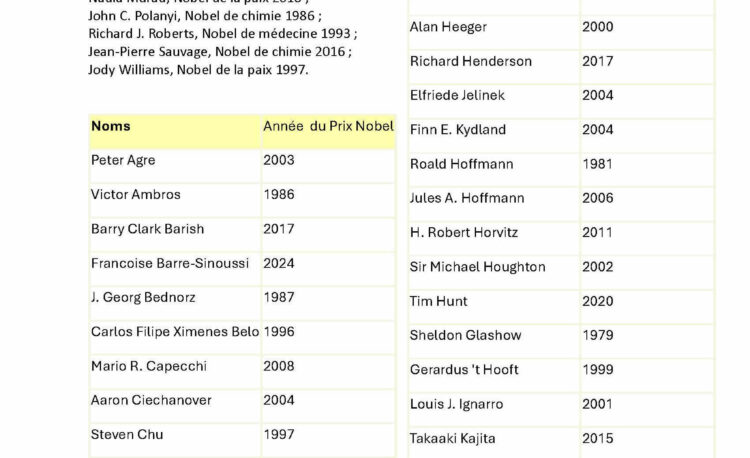In an op-ed published by the French newspaper Le Monde, 75 Nobel laureates, including Dr. Denis Mukwege, urge the international community to take immediate action to end what they describe as the “Congolese tragedy”, marked by more than three decades of war, extreme violence and persistent impunity.
The Democratic Republic of Congo (DRC) is facing one of the deadliest conflicts since the Second World War, with around 6 million people killed. Added to this are more than 26 million people facing acute hunger, 7.8 million internally displaced persons and a growing recourse to sexual violence, particularly against children. The article denounces global silence and inaction in the face of this massive crisis.
The text explicitly accuses Rwanda, and in particular its support for the M23 rebel group, of fueling the war by plundering Congo’s natural resources. Since the resurgence of the M23 in 2021, some 4,000 Rwandan soldiers have invaded eastern DRC, seizing areas rich in minerals. Today, this occupation forces over 10 million Congolese to live in fear.
The signatories denounce a “double standard” in international diplomacy: according to them, the Rwandan aggression is tolerated, while rapid sanctions have been imposed in other conflicts, such as the one in Ukraine. They question the value placed on the lives of African populations in the current international order.
The United Nations Mapping Report published in 2010 already documented the crimes committed between 1993 and 2003. Since then, the violence has never ceased, deploding the authors. The UN’s humanitarian plan for 2025 is only 8.2% funded, making the DRC one of the world’s most neglected crises.
Sexual violence against children has reached an unprecedented level, with almost 10,000 cases reported in two months. In some regions, a victim is recorded every 30 minutes.
The Nobel Prize winners are calling for the immediate implementation of Security Council Resolution 2773, which demands an unconditional ceasefire, the withdrawal of Rwandan troops and an end to support for the M23. They are also calling for the organization of an international conference for peace in the DRC, aimed at creating a platform for sustainable dialogue, including women and young people.
Finally, they are calling for the creation of an international tribunal to judge the crimes committed, on the basis of the Mapping report. For, they say, “justice must be at the heart of any lasting peace”.
“We all have a piece of the Congo in our pockets”, they remind us, pointing out that the minerals extracted in the DRC are essential to the manufacture of smartphones, computers and electric vehicles. In their view, the Congolese question is also a global issue, one of justice, peace and collective responsibility.
Written by Akilimali Chomachoma

